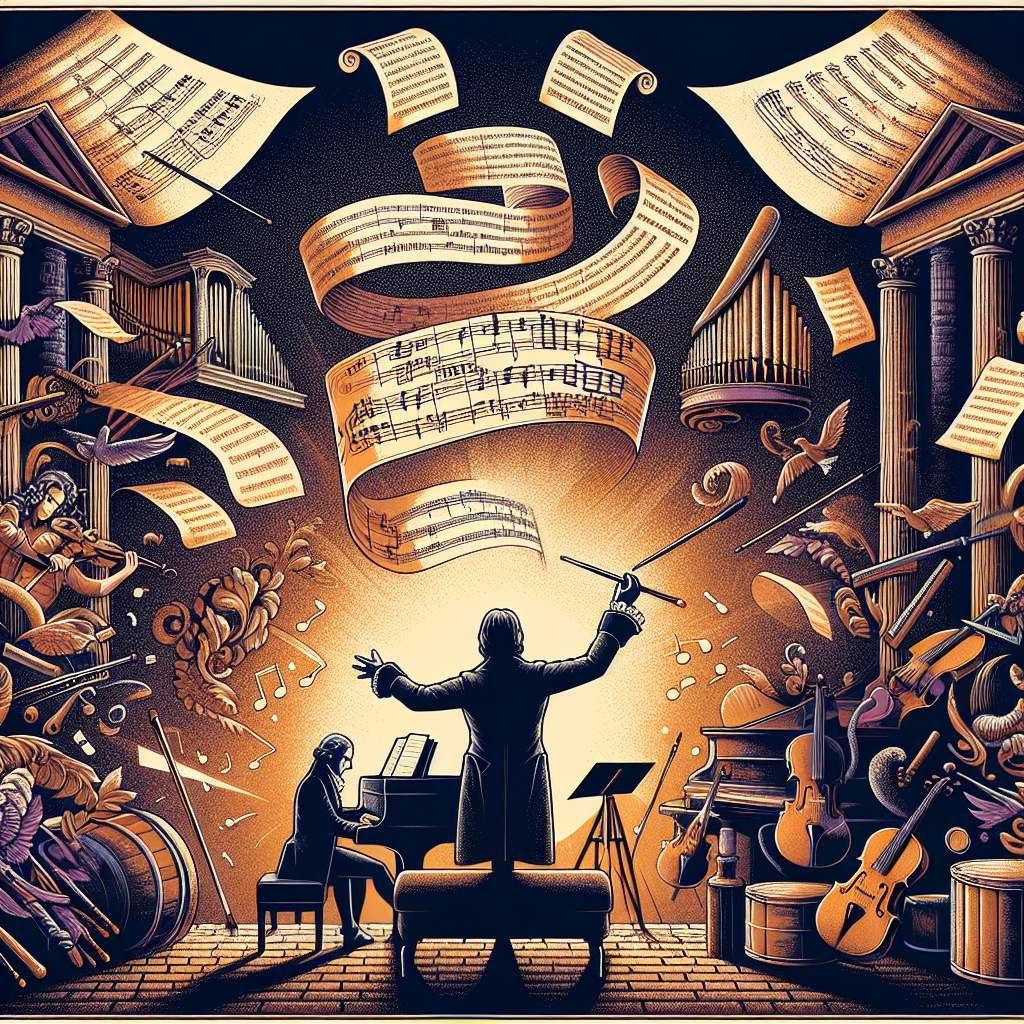Why Amadeus (1984) is a Timeless Masterpiece: Discover the Magic Behind This Iconic Film
Introduction and Significance in Cinema History
Released in 1984, Amadeus, directed by Miloš Forman and adapted from Peter Shaffer’s stage play, stands as a pinnacle in cinematic history for its expansive narrative, complex characters, and profound exploration of genius and envy. It captures the waning era of classical compositions with a dramatic flair that simultaneously respects and elevates the biography of Wolfgang Amadeus Mozart. The film won eight Academy Awards, including Best Picture, establishing itself as a timeless masterpiece. Its significance is not merely in its accolades but in its ability to merge historical and fictional storytelling to create an immersive world that resonates with audiences even today.
Main Themes and Character Arcs
The central theme of Amadeus is the juxtaposition of genius and mediocrity, closely examined through the life and music of Mozart (portrayed by Tom Hulce) and his less gifted contemporary, Antonio Salieri (F. Murray Abraham). Salieri, who serves as both protagonist and antagonist, is the film’s conduit for exploring themes of envy, divine injustice, and the torment of mediocrity. Through Salieri’s retrospective confession, the narrative dives deep into his obsession with Mozart, a man whose otherworldly talent he reveres and resents in equal measure.
Mozart, depicted as both a prodigious genius and an impish, reckless figure, embodies the divine madness of creative brilliance. His character arc is one of tragic decline, driven by financial ruin, personal loss, and societal disdain. The vibrant portrayal of his music stands in stark contrast to his deteriorating personal life, symbolizing the enduring and transcendent nature of true art despite human frailty.
Salieri, on the other hand, experiences a grim revelation. His recognition of Mozart’s undeniable skill triggers a crisis of faith and leads him to question his purpose and divine justice. His desperate longing for recognition despite his mediocrity embodies the human struggle for significance and acceptance.
Cinematic Techniques and Impact
Forman’s Amadeus utilizes a variety of cinematic techniques to enhance its storytelling. The film’s visual composition, dominated by opulent costumes and sets, immerses the audience in the grandeur and decadence of 18th-century Vienna. The synergy between the opulent visuals and the emotive power of Mozart’s compositions creates an experience that is both haunting and exhilarating.
The film uses music not simply as a backdrop but as a narrative device. In standout scenes, such as the dictation of Mozart’s Requiem by a desperately ill composer, music becomes a character in and of itself. The interplay between score and dialogue powerfully conveys the depth of emotions, creating a symphony of tension, admiration, and desperation.
Moreover, Forman’s choice of lighting, camera angles, and close-ups, particularly during moments of intense personal conflict, allows audiences intimate access to the characters’ inner turmoils. The film’s use of light and shadow reflects the thematic tension between light (Mozart’s music) and shadow (Salieri’s envy).
Cultural, Social, and Historical Reflection
While Amadeus takes liberties with historical accuracy to better serve its narrative, it offers a lens through which to examine the cultural and social structures of 18th-century European society. It reflects on the rigid hierarchical patronage systems of the time, where even prodigious talent was bound by social class and economic dependency.
The film’s portrayal of Mozart as a flawed genius struggling against these constraints resonates with the modern understanding of the tortured artist archetype. It prompts consideration of how society values artistic contributions and the often tumultuous lives of creatives. Salieri’s struggle for validation also reflects the universal human dilemma of self-worth and the painful awareness of one’s limitations.
Legacy and Lasting Influence
Amadeus has left an indelible mark on both the film industry and popular culture. Its success revitalized interest in classical music and Mozart in particular, introducing his works to a new generation. In cinema, the film set a benchmark for biographical storytelling, inspiring a wave of films that balance historical context with narrative creativity.
The film’s exploration of genius and mediocrity, as well as its depiction of envy and ambition, paved the way for deeper character-driven narratives in Hollywood. Its influence can be seen in subsequent films and performances that delve into the complexities of human emotion without sacrificing storytelling.
Reflective Questions and Takeaways
Amadeus remains relevant today, inviting audiences to contemplate the nature of genius and its relationship with society. It challenges viewers to reflect on their own perceptions of success and mediocrity and to consider how external validation shapes artistic and personal identity.
In today’s world, where the arts compete with economic pragmatism, Amadeus poses the question: How do we truly value genius, and what responsibility do we have to nurture it? The film’s enduring appeal lies in its ability to evoke these timeless questions, offering a mirror to our own struggles with envy, ambition, and the pursuit of legacy.
In considering the relevance of Amadeus today, viewers can explore how digital technology and modern social structures have changed the landscape for creatives. Does the democratization of the arts erode the traditional barriers depicted in the film, or do they simply morph into new forms? As we celebrate and question our evolving cultural priorities, Amadeus remains a haunting and beautiful reminder of the complexities of art and the human condition.
Got more questions? Our personalized Movies Explorer AI assistant is here to help. Click here to start a conversation!
[Advertisement]
Looking for deeper meaning in your favorite movies? Discover how ANY movie relates to positive biblical principles with Movies and Scripture GPT from BGodInspired.com. Click here to explore insights you might not have realized! . Simply key in any movie and let it show you insights you might not have realized otherwise!
[Advertisement]

